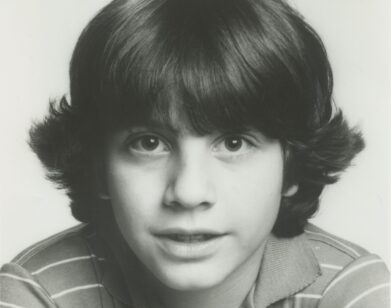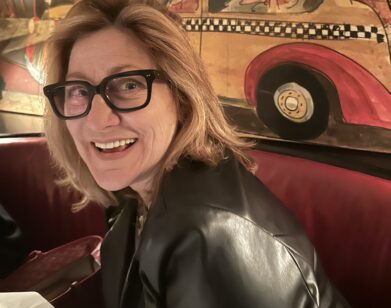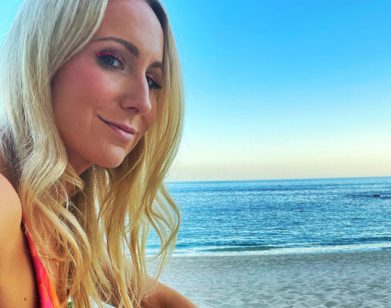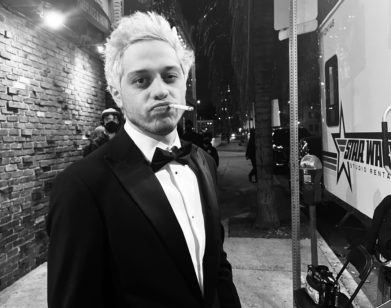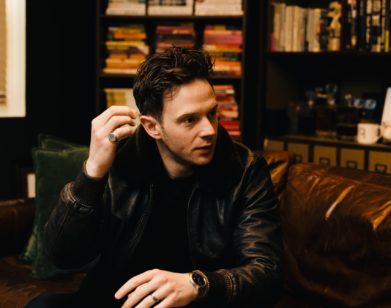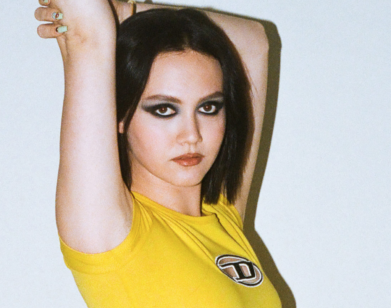Funny Ha ha
The Comedian Ricky Velez and Steve Buscemi on Writing Perfect Jokes
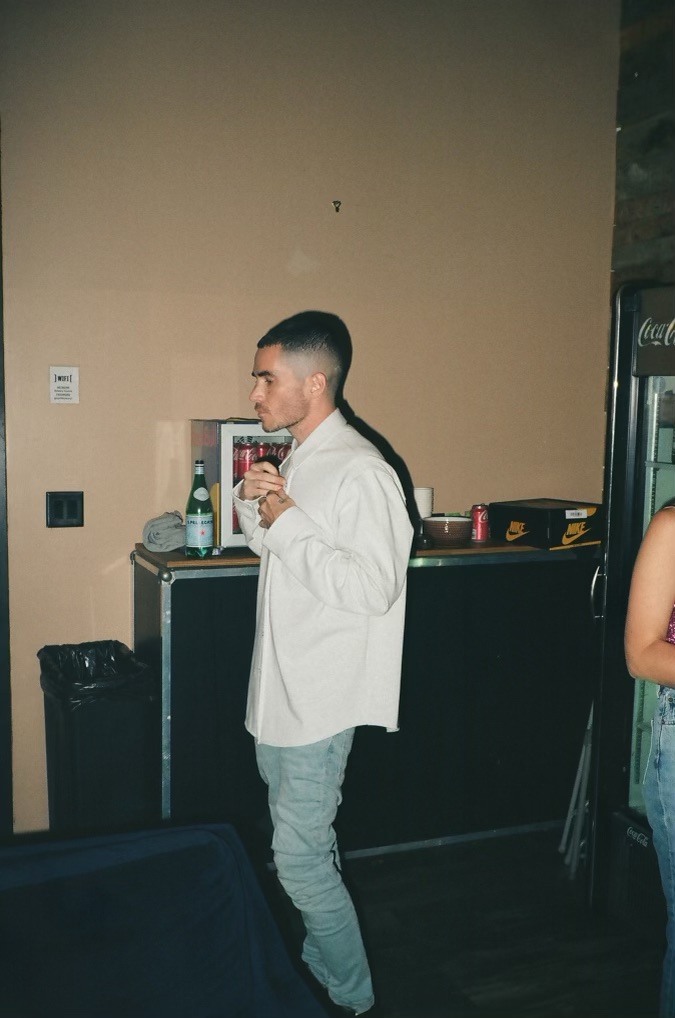
Most New Yorkers, it’s safe to say, take their birthright very seriously. But Ricky Velez, the Queens-born comedian, brings this commitment to new heights. Velez got his start roaming the city’s five boroughs — with his childhood best friend and fellow comedian Pete Davidson in tow — and cobbling together gigs at several seedy comedy clubs in a single night. Afterwards, Velez and Davidson would split the night’s meager winnings (usually less than $10 each, Velez recalls, after gas), before driving home to catch a few hours’ rest before their day shifts as food couriers. It was after years spent pounding the pavement as a standup salesman that Velez landed himself a role writing (and acting) for the Judd Apatow-helmed 2020 comedy King of Staten Island, starring Davidson. The film launched Velez into a new echelon of comedy prestige: late last month, he premiered Here’s Everything, his new HBO comedy special, executive produced by Apatow and directed by Michael Bonfiglio. The special spotlights Velez’s gift for storytelling that is both blisteringly honest and wickedly funny. Below, Velez hopped on the phone with his friend — and fellow King of Staten Island cast-mate and native New Yorker — Steve Buscemi, who had a few questions for his young friend about the HBO special, working with Davidson, and writing mean jokes.
———
STEVE BUSCEMI: How are ya?
RICKEY VELEZ: I’m all right. Trying to do it all. How about yourself?
BUSCEMI: I’m doing good. Now, we’re just editing the film that you were so graciously a part of.
VELEZ: Thank you for having me on that. That was so fun.
BUSCEMI: Thank you for doing it, because yours was not a very sympathetic character, but you somehow infused him with humanity, which just blew me away. How was it doing Seth Meyers?
VELEZ: It was awesome. He’s such a nice guy, and for that to be the first late night I’ve done, I think it went the best it possibly could have.
BUSCEMI: I thought it was great. Did you get to meet Elizabeth Warren backstage?
VELEZ: I wanted to, but it didn’t happen. My plan was to give her a hug and tell her I pay taxes.
BUSCEMI: So, we met — or at least, this was the first time I remember meeting you — at the rehearsal for King of Staten Island.
VELEZ: Yeah, Judd [Apatow] had me sit in on all of them, which was a really cool experience. He let me do that with a lot of different projects — even auditions. It’s so interesting to be on the other side of that table, and to see how much they’re actually rooting for you.
BUSCEMI: One thing I’ve found out as a director sitting on the other side of the table and having to audition actors — which is so uncomfortable — is that I’m more nervous than they are. When I used to go on auditions, I would feel so nervous and intimidated, but I’ve since realized that, actually, everybody’s nervous, and nobody really likes it.
VELEZ: That’s the whole business in a nutshell. Everybody’s nervous and just guessing.
BUSCEMI: So Judd really let you in on the whole process for King of Staten Island, to the point of helping him fine tune the script and writing material for it.
VELEZ: He originally had me doing punch up, and then he was like “Well I’m going to want you on set every day doing this as well.” That was a lot of fun, because writing jokes for people like you and Marisa Tomei made me realize how much comedy has brought to the table for me.
BUSCEMI: I know you worked for the Larry Wilmore show, but have you ever written for other people before?
VELEZ: No. Usually I write for myself, and do standup. It was like taking a year long course — nobody got the kind of experience last year, in the middle of a pandemic, that I got. I just basically wrote the whole time with Judah Miller and Judd.
BUSCEMI: Speaking of writing, how do you approach your own material? I’ve seen the new special —which is great — but I’ve never seen you on stage. How do you write and what is your process for testing your material out before you get up in front of an audience?
VELEZ: I think that’s why comics had the hardest time during the pandemic — it really is the only art form that demands an audience. You can play the guitar at home, you can paint in your studio, whatever. But we just lost everything. My writing is all done live. I go on stage at the Comedy Cellar and then, at the end, I ask for my tape and I re-watch it and add or cut things accordingly. I had some jokes in the special that I love and I know are amazing, but they didn’t make sense to the larger story I was trying to tell. I think standup has to have a beginning, middle and end — just like a movie — so these were the jokes that accomplished that.
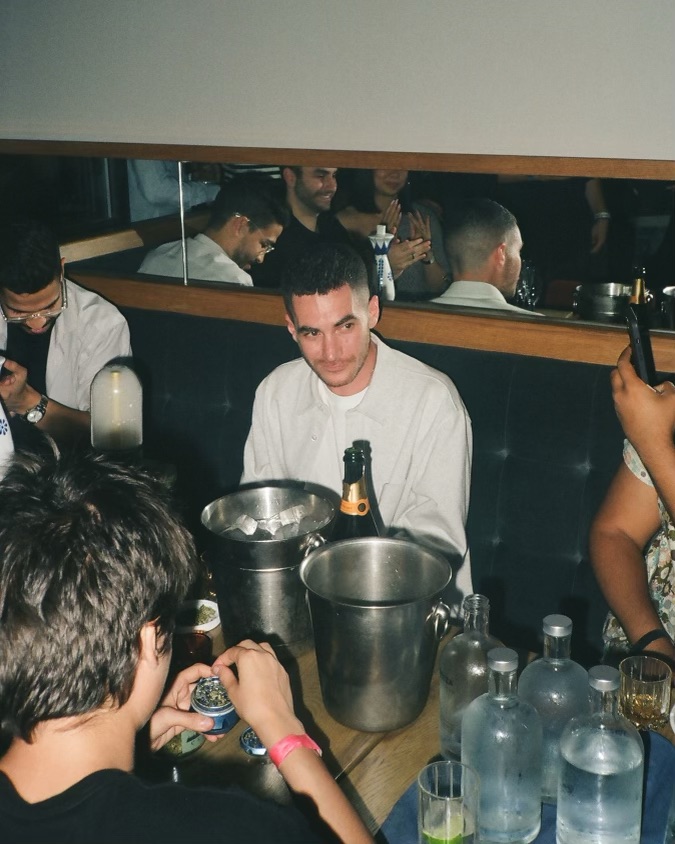
BUSCEMI: That’s something interesting about your style, you’re not like, “Joke, joke, joke.” As I listened, I could see the people you’re talking about and the situations that you’re in.
VELEZ: When I first started comedy, I was just trying to figure out what makes a joke work. And then you write one, and realize that you’ve touched a couple people with it. The first time I started talking about my anxiety on stage was during a show I did at a college somewhere. The reaction that I got from that was surprising. People were like, “I have that. I’ve never heard somebody express it like that.” It made me go, “Oh, that’s how you write to connect.” Now, when I do a show, I’ve noticed that afterwards, people talk to me like they know me. I think that’s because of the storytelling.
BUSCEMI: Who are the comedians that inspired you? I used to do stand up, you know.
VELEZ: Wow! Tell me about that.
BUSCEMI: I somehow passed the auditions at The Improv in New York. I had such a hodgepodge style… I was a little Rodney Dangerfield, a little Woody Allen. The biggest guys performing there at the time were Jerry Seinfeld and Gilbert Godfrey, who had completely different styles. After a while, I moved on, because I thought, “I’ll never be as good as these guys. They know who they are on stage.” I couldn’t find my voice as a comic. Later, I discovered that I was much better at finding my voice as an actor — not that I can articulate what my voice is as an actor — but I just knew that I liked working with other actors. It was hard for me to be up on stage and have an audience staring at me. How did you develop that style? What was it like when you first got up on stage?
VELEZ: I worked odd jobs for a long time after college. My mom wanted me to get back into acting, because I went to Frank Sinatra School of the Arts. In comparison to acting, comedy is about instant gratification. With acting, you tape something and then you wait eight months for somebody to tell you, “You did a good job” or, “You did a bad job.” Stand-up gives it to you that night, in the room, and you can understand the reaction very quickly. I fell in love with that feeling while working at a comedy club. My deal was if I worked there, I could perform in every show. You learn quickly: who’s good, why they’re good, why it works for one person and not another. For a long time, I was just the annoying little kid around the club, but the regular performers took me in, helped me develop a great set, and told me when it was time to move on and try bigger things.
BUSCEMI: It’s interesting to me, Ricky, that you started out wanting to be an actor. Are there moments from your life that you travel back to when you perform?
VELEZ: A lot of the time, I’m going back into my pain. Not that I’m at all a miserable person — a lot of people have pain. In comedy, when you can take that pain and make it into laughs, I think you connect with people easily. I do a bit about being hit as a kid, and I love how uncomfortable the audience gets right before they completely crack up. I enjoy that.
BUSCEMI: I don’t want to give away your material, but there’s another bit where you talk about how upset your dad was when Derek Jeter retired, and that it was one of the only times you saw him cry. You respond to him by saying, “Dad, take it easy, remember that Mom’s dead.” You don’t say anything else about it — except that, unlike Jeter, she never batted .300— and the whole story really shocked me. I know that those are painful memories. They’re not even memories, they become a part of your DNA. I was amazed at how easily you could drop those lines in a stand-up set, pause for a beat, and then keep moving. But you enjoy that.
VELEZ: Another joke like that in the special is about my mom’s drinking, and how she used to ground me all the time. I say, “We’ll see what Jose Cuervo has to say about that grounding. I think I’ll be seeing my boys tonight, Kathleen.” For so much of my life, my mom’s drinking was like this family secret. It really bothered me. My mom passed away five or six years ago on Valentine’s Day from a heart attack. You’re just left there thinking, “Maybe the drinking had something to do with it.” It’s interesting to do those jokes in front of people that have had that same pain, because they enjoy it the most. That’s the reason why I love performing for veterans. Veterans are the best crowd you can ever get as a comedian, because they’ve seen life.
BUSCEMI: Everybody — I don’t care who you are — has someone that they know who struggles with addiction or mental illness. There’s something cathartic about watching somebody on stage, and see your experience in them. How great was it doing a movie with your best buddy, Pete [Davidson]? What was it like to write and act in it with him? You two have such a great rapport.
VELEZ: Me and Pete talk about it a lot. We try to remain grateful for everything that’s happened for us. We used to make $20 bucks, put half in the tank of my Honda accord that I used to deliver food during the day and drive from Staten island to Queens to Manhattan to do shows, and split the rest. It was hard. I remember me and Pete once went to the Catskills to do a show, and we had to split $75 at the end. Getting to work with my best friend through all of that is so special, and it just makes our bond stronger. We trust each other’s talents and ideas.
BUSCEMI: You talk about your family and friends in your stand up, and you mention your wife and kid a lot. As I watch your stuff, I can’t help but wonder: Do you run stuff by her before you get up on stage?
VELEZ: Here’s the trick, Steve: You make the joke so good, you make her listen to it in front of a crowd of people, and she won’t tell you, “You can’t do that.”
BUSCEMI: Uh-huh. Has that ever backfired?
VELEZ: [Laughs] Not yet, but I’m only kidding. My wife can respect a good joke, but she can’t respect a bad premise. She’s really cool. We are a team doing this together. Right before this call, I was doing a self-tape and she’s the one who was reading with me. It’s honestly a family business at this point. And we have our three-year-old. One thing about my wife is, she will never allow herself to walk around in sweatpants — you’ll see her with all the other moms on the playground at 8 AM, and she’ll be in a full outfit. She takes a lot of pride in who she is, and it really helps me a lot. Through the last couple of years, with everything that happened in my family, and having a kid together…I’m a very emotional, immature person. She holds it down for us a lot.
BUSCEMI: I can tell, from this conversation alone, that you’re great parents. During the end credits after your special, there’s footage of your son playing his toy guitar and singing his heart out with a Ramones t-shirt on. The fact that you’re exposing him to the Ramones also shows me that you’re strong parents.
VELEZ: I can’t thank you enough for doing this Steve, you’re one of my heroes. Your range is the coolest thing — how you move from deadly serious to wickedly funny.
BUSCEMI: Well, that means a lot. I have to tell you, watching your work, getting to know you, working with you on that recent film I did, seeing your relationship with Pete, all of that to me is what this business should be all about: you guys create such amazing work out of your personal struggles and experiences.
VELEZ: Steve, that means the world.

